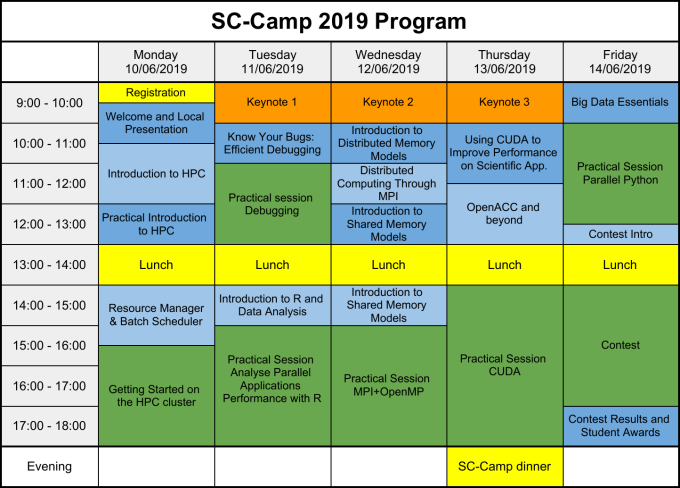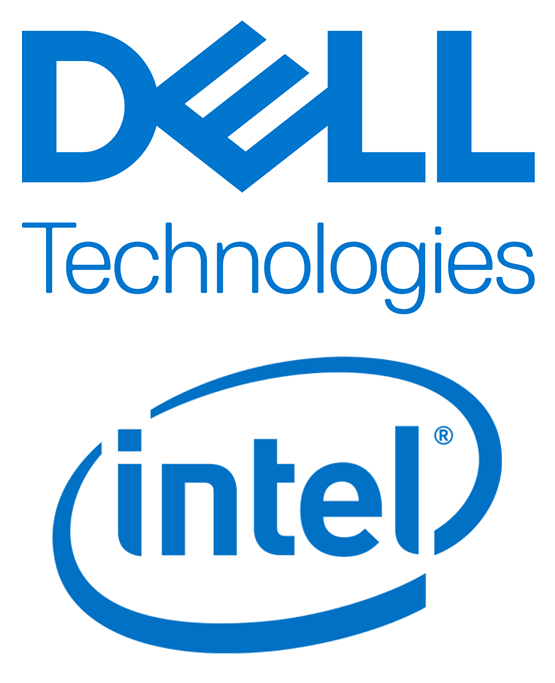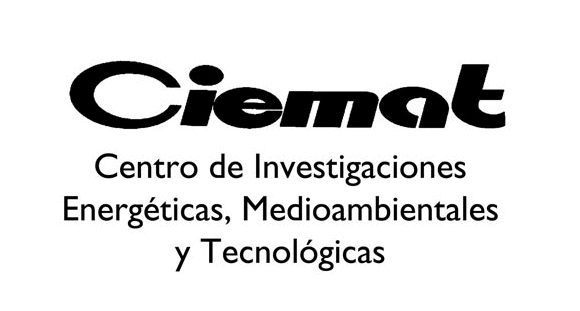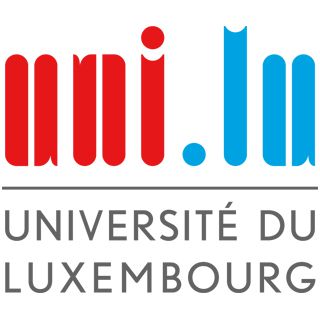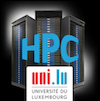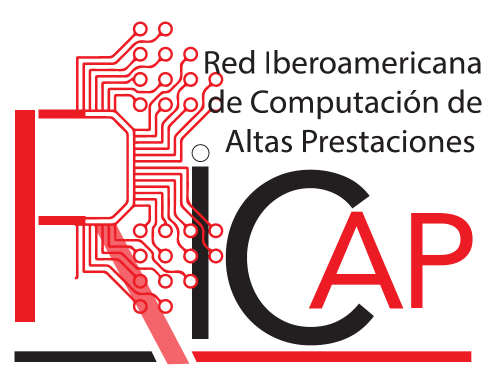Program
Overview
Program of SC-Camp 2019:
Program summary
- Welcoming
- Introduction to High Performance Computing
- Using an HPC cluster
- Debugging & Profiling
- Data Analysis with R
- HPC Programming: Principles of Distributed and Shared Memory Models
- Leveraging Accelerators for HPC
- Big Data
- Contest
- Keynotes
Detailed Program
Welcoming
Registration
Meeting the staff and instructors
Welcome and Local Presentation
Speakers:
- Prof Carlos Jaime Barrios Hernandez (UIS - Bucaramanga, Colombia)
- Local committee
Presentation of SC-Camp and the Sponsors and the local research teams.
Introduction to High Performance Computing
Lecture: Introduction to HPC Applications, the Need for Scalable Architectures
Duration: 1h30
Speaker: Prof Carlos Jaime Barrios Hernandez (UIS - Bucaramanga, Colombia)
An introduction to the first parallel and distributed machines until today state-of-the-art. This lecture aims at presenting the key factors from the rise of parallel applications to today’s huge distributed systems. From the cluster to BigData, passing through the grid, the cloud, GPU, and much more.
Lecture: Practical Introduction to High Performance Computing
Duration: 1h
Speaker: Dr Xavier Besseron (University of Luxembourg)
Computer simulation and data processing is now a key skill for every engineer as the complexity of the problems to be solved and the amount of data to analyzed are always increasing. High Performance Computing (HPC) proposes to leverage distributed and parallel computers to execute these applications quickly and efficiently. This talk gives an overview of the HPC concepts, then, a typical HPC workflow is studied and precious advice to get your HPC simulations running efficiently are provided.
Objectives:
- Know the hardware hiearachy of an HPC platform
- Understand the different possible bottlenecks
- Know the possible approaches to address bottlenecks and improve performance
Using an HPC cluster
Lecture: Resource Manager & Job Scheduler
Duration: 1h30
Speaker: Ing Clément Parisot (UL HPC - University of Luxembourg)
High Performance Computing platforms are platforms offering a large number of computing resources shared among a large of number of users. The Resource Manager and Job Scheduler are the core tools of such platform which allow to distribute the resource to the users and avoid any conflict.
This lecture proposes an overview of a typical HPC platform and defines the concept of resources. It describes and explains the role of the resource manager and job scheduler in an HPC platform, and introduce the concept of job scheduling. Then it offers an overview of the most useful features: interactive session, reservation, job submission, etc. in the main job schedulers (e.g. SLURM).
In the end, it provides all the key elements for an efficient HPC workflow.
Content:
- Organization of a typical HPC platform
- What is a resource?
- Introduction to resource manager and job scheduler
- Job scheduling
- Launcher script
- HPC workflow
- Basic commands for SLURM and OAR
Practical Session: Getting Started on the HPC cluster
Duration: 2h30
Speakers:
- Ing Clément Parisot (UL HPC - University of Luxembourg)
- Dr Xavier Besseron (University of Luxembourg)
The first purpose of the this session is to allow the students to configure their access to the HPC platform. In a second time, the students can experiment with the main features of the job scheduler.
Objectives:
- Setting up access to the computing platforms with SSH
- Getting familiar with the resource manager (SLURM, OAR)
- Loading modules and using compilers
- Running applications in interactive mode
- Writing launcher script and submitting jobs
Debugging & Profiling
Lecture: Know Your Bugs: Weapons for Efficient Debugging
Duration: 1h
Speaker: Dr Xavier Besseron (University of Luxembourg)
This presentation gives the essentials to fight and prevent the bug invasion occurring in any software. It proposes a short introduction to debugging tools, focusing mainly on GDB and Valgrind. Then the most common types of bugs are presented and explained, and a method to track them is proposed. Finally, recommendations for day-to-day software development are advised in order to keep safe from bugs (as much as possible) or at least track them efficiently.
Content:
- Overview of the main tools used for Debugging (Compilers, Debuggers, Dynamic Analyzers)
- Detailed overview of the different of bugs:
- Why it occurs?
- How to find it?
- How to fix?
- Good practices to avoid bugs and debug efficiently
Practical session: Debugging & Profiling
Duration: 3h
Speaker: Dr Xavier Besseron (University of Luxembourg)
During this practical session, the student will learn how to track bugs in voluntarily infested programs using the tools introduced previously.
Objective:
- Apply the tools introduced earlier to find bugs in many example programs
Data Analysis with R
Lecture: Introduction to R and Data Analysis
Duration: 1h
Speaker: Dr Xavier Besseron (University of Luxembourg)
This lecture proposes a quick introduction to R and data analysis. It gives an overview of the basic commands and data structures to get started with R and suggests a few good practices to organize and manipulate data.
Content:
- Basic commands
- Objects, Data structures and data frames
- Reading and exploring data
- Data manipulation with
dplyr
Practical Session: Analyse Parallel Applications Performance with R
Duration: 2h
Speaker: Dr Xavier Besseron (University of Luxembourg)
With a good basis, let’s practice on the subject of performance evaluation of parallel applications.
Objective:
- Practical session objectives:
- Being able to plot data
- Organize and Manipulate your data with
dplyr - R in parallel, single-node and multi-mode
HPC Programming: Principles of Distributed and Shared Memory Models
Lecture: Introduction to Distributed Memory Models
Duration: 1h
Speaker: Prof Robinson Rivas (Universidad Central de Venezuela)
Programming models to understand the trends when using multiple computing units.
Lecture: Distributed Computing Through Message Passing MPI
Duration: 1h
Speaker: Prof Robinson Rivas (Universidad Central de Venezuela)
The challenges of distributed computing involve exchanging message. The MPI, message passing interface, is still THE standard for many distributed applications. Throughout this lecture we will visit many aspects of distributed programing usign MPI.
Lecture: Introduction to Shared Memory Models
Duration: 1h
Speaker: Prof Robinson Rivas (Universidad Central de Venezuela)
Todays’ HPC systems always count on multiple cores. With the goal to improve the usage on such systems knowledge of multithread programing is mandatory. This lectures shows the basis of OpenMP : a well spred environment to implement parallel applications.
Modern HPC platforms platforms are based on both Distributed and Shared memory architectures. In the case of Shared Memory, even handheld devices uses multiple processors/cores hardware, and it is usual to have up to 16 processing cores on commercial smartphones. Understanding how these architectures works is very important for Computer Scientists and programmers. In this tutorial, students will learn about some different Shared Memory models, the advantages of this approach, and the main implementations found for commercial and scientific usage.
Practical Session: Programming with MPI and OpenMP
Duration: 3h
Speakers:
- Prof Robinson Rivas (Universidad Central de Venezuela)
- Dr Xavier Besseron (University of Luxembourg)
Using MPI and OpenMP, we will guide you on the implementation of a parallel and distributed application.
Leveraging Accelerators for HPC
Using CUDA to Improve Performance on Scientific Applications
Duration: 1h30
Speaker: Prof Carlos Jaime Barrios Hernandez (UIS - Bucaramanga, Colombia)
Programming with CUDA we will visit projects that significantly improve their performance using CUDA.
OpenACC and Beyond
Duration: 1h30
Speaker: Prof Carlos Jaime Barrios Hernandez (UIS - Bucaramanga, Colombia)
Programming with OpenACC.
Practical Session: Using Accelerators to Improve Performance & NVIDIA-DLI Workshop
Duration: 4h
Speakers: Prof Carlos Jaime Barrios Hernandez (UIS - Bucaramanga, Colombia)
This practical session is the opportunity to use accelerators that will be available for the students.
They will also practice using the NVIDIA Deep Learning Institute platforms.
Big Data
Lecture: Big Data Essentials
Duration: 1h
Speakers:
- Ing. Gilberto Díaz (UIS - Bucaramanga, Colombia)
- Prof Robinson Rivas (Universidad Central de Venezuela)
Practical Session: Parallel Python
Duration: 2h30
Speakers:
- Ing. Gilberto Díaz (UIS - Bucaramanga, Colombia)
- Prof Robinson Rivas (Universidad Central de Venezuela)
Contest
Contest Introduction
Duration: 0h30
Speakers:
- Prof Robinson Rivas (Universidad Central de Venezuela)
- Dr Xavier Besseron (University of Luxembourg)
A contest will be proposed to the student to allow them to apply the knowledge they acquired. Different problems are provided and they can selected one/many categories in which they which to participate. The students are encouraged to propose parallel and distributed solutions that run on the HPC cluster.
Results are evaluated based on their correctness and performance.
Contest Supervision
Duration: 3h
The students are given time to solve the problems and are supervised by the instructors of the SC-Camp.
Contest Results and Student Awards
Duration: 1h
The best solutions of the contest are presented by the students and discussed with everybody.
Keynotes
Keynote 1: Air Quality Modelling and the Need for Super-Computing
Abstract: Models have become a powerful tool in air quality management with a variety of applications including air quality forecast and assessment, evaluation of impacts from potential new emission sources, source contribution to high pollutant levels and the evaluation of air quality for different policy scenarios. These models estimate air pollutant concentrations for gas and aerosol species by solving the mass balance of a given compound, considering all the physical and chemical processes affecting its concentration. These processes include transport, vertical mixing, chemistry, dry and wet deposition, emissions, gas-particle conversion processes and other processes affecting aerosol growth. Air quality models are applied at different scales, from global to urban. The spatial domain is divided into grid cells and the mass balance is solved for each of them. The computing requirements increase therefore with the number of cells. Finer resolutions have been traditionally limited to small domains, but the increase in supercomputing capacity permits the simulation of larger areas at finer resolutions.
Duration: 1h
Speaker: Dr Marta García Vivanco (CIEMAT. Air quality modeling Group, Air Pollution Division, Environment Department.)
Biography: Marta García Vivanco is a research scientist working since 2003 in the Atmospheric Pollution Unit in CIEMAT (Madrid, Spain). She has a degree in Physics (1992, Universidad Complutense de Madrid, UCM, Spain) and a degree in Chemistry (2008, UNED, Spain). She got her Ph.D. at the UCM (Spain) in 2004. She is the responsible for the photochemical modelling in the air quality modelling group in CIEMAT. Her expertise is focused on regional, global and urban air quality modelling, being involved in air quality and atmospheric deposition assessment in Spain, reporting the Ministry responsible for the environmental activities. Between 2013 and 2015 she worked closely with the developers of the CHIMERE model at INERIS (France) due to her expertise in the model, in the framework of an agreement between CIEMAT and INERIS financed by INERIS. Since 2015 she has signed several contracts with the European Commission as an expert for the evaluation of research projects and fellowships in several calls (H2020-MSCA-IF-2016, 2017, 2018, H2020-MSCA-ITN-2017, 2019, H2020-SCS-WATER-WASTE-2015). She participates as national expert in several international forums in the framework of the Convention on Long-range Transboundary Air Pollution (LRTAP), such as the Task Force on Measurements and Modelling (TFMM) or the Task Force on Hemispheric Transport of Air Pollutants (TFHTAP).
Keynote 2: Convergence Big Data - HPC. Problems and solutions
Abstract: This talk will present the need to achieve convergence between HPC and Big-Data Systems, the problems that are present today in the architecture and software systems of each area, and the challenges to face. Some possible solutions will be also presented, exemplified with proposals developed/in development at University Carlos III of Madrid.
Duration: 1h
Speaker: Prof Jesus Carretero (Computer Science and Engineering Department, University Carlos III of Madrid, Madrid, Spain)
Biography: Jesus Carretero is a Full Professor of Computer Architecture and Technology at Universidad Carlos III de Madrid (Spain), where he is responsible for that knowledge area since 2000 and leader of the Computer Architecture Research Group (ARCOS). His research activity is centered on high-performance computing systems, large-scale distributed systems, data-intensive computing, IoT and real-time systems. He was Action Chair of the IC1305 COST Action “Network for Sustainable Ultrascale Computing Systems (NESUS)”, and he is also currently involved in the H2020 project ASPIDE to define data-driven prgramming models for Exascale systems. He has participated and leaded several national and international research projects in these areas, founded by Madrid Regional Government, Spanish Education Ministry and the European union. Prof. Carretero is Associated Editor of the journal Future Generation Computer Systems. He has published more than 180 papers in journals and international conferences, editor of several books of proceedings, and guest editor for special issues of journals as Intenational Journal of Parallel Processing, Cluster Computing, Computers and Electrical Engineering, and New Generation Computing, and he is coauthor of several text books related to Operationg Systems and Computer Architecture. He has participated in many conference organization committees, and he has been General chair of GGRID 2017, HPCC 2011 and MUE 2012, and Program Chair of ISPA 2012, EuroMPI 2013, C4Bio 2014, and ESAA 2014.
Prof. Carretero is a senior member of the IEEE Computer Society.
Keynote 3: Is volunteer computing an alternative to HPC infrastructures?
Abstract: This talk presents the opportunities and challenges of volunteer and similar systems to offer a sustainable solution to HPC needs. Several projects in the world aimed to gather as many desktop computer as possible to add their capacity to run HPC applications in a very economical way, here we analyze the real benefits of such proposals and study what should be improved to make viable the use of these platforms.
Duration: 1h
Speaker: Prof Harold Castro (Computing and Systems Engineering Department, Universidad de los Andes, Bogotá, Colombia)
Biography: Harold Castro graduated as Computing and System Engineer at Universidad de los Andes in Bogota, Colombia. He got a D.E.A (MSc) from the Institut National Polytechnique de Grenoble (INPG), in Grenoble, France and since 1995 he holds a Ph.D. in computer science from INPG also. Associate professor at the Computing and Systems Department at Universidad de los Andes. He is the director of the COMIT (Communications and Information Technology) research group which main research focus are distributed systems and High Performance Computing (HPC) Systems. Dr. Castro personally leads institutional and national cloud and HPC initiatives, and he was national coordinator for the establishment of a grid HPC platform between Europe and Latina America. His interest areas are: HPC, distributed systems and cloud computing.

